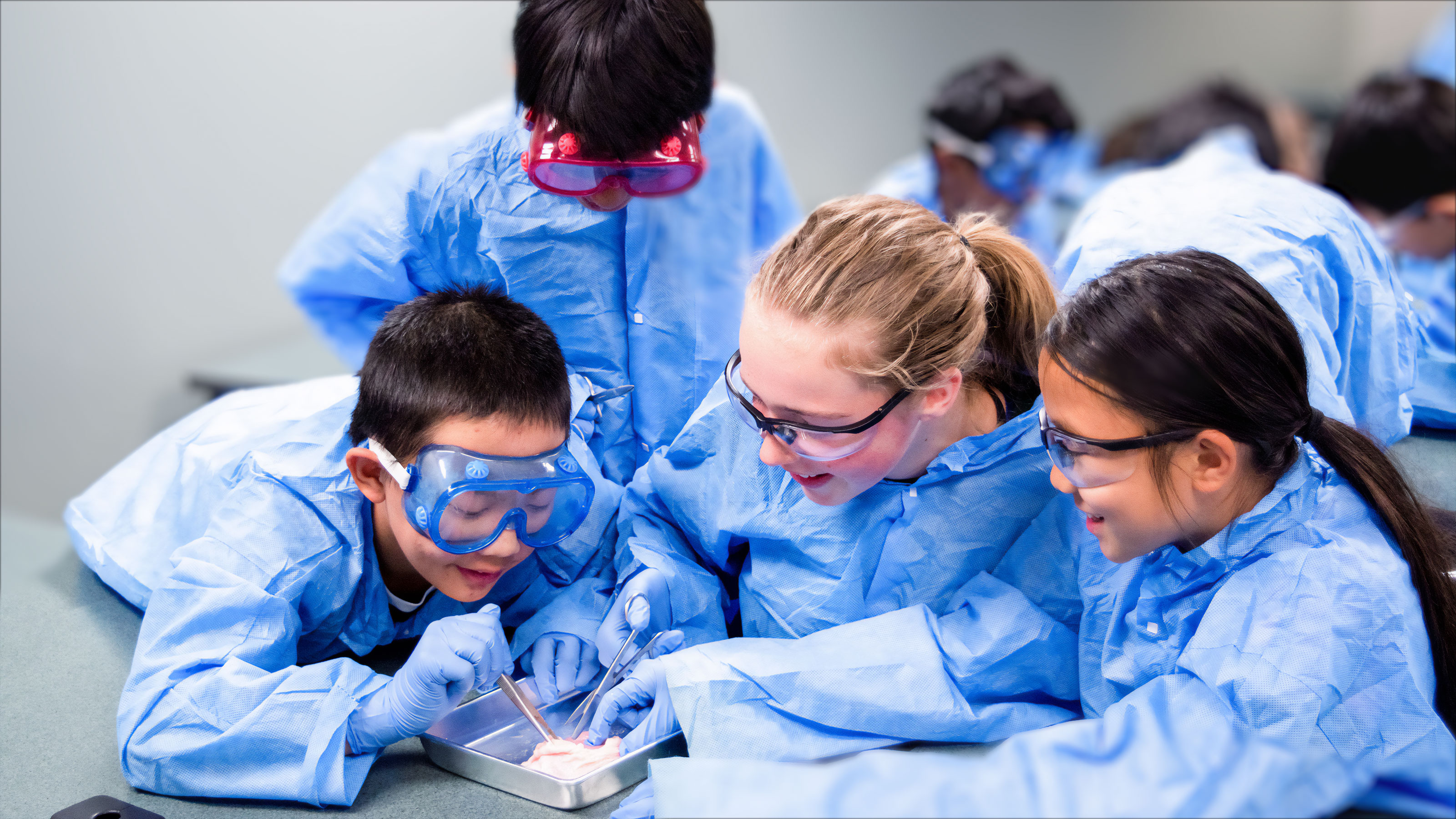Callie Lissinna graduated from the University of Alberta’s Faculty of Engineering with the distinction of being part of the team responsible for the very first satellite mission, ExAlta-1, to ever come out of Alberta.
Four years later, the AlbertaSat alum has her own startup building satellites that take high-resolution pictures of Earth primarily so farmers can tell what their crops need to optimize yield.
But despite possessing an insatiable fascination with space for as long as she can remember, Lissinna said she owes at least a small part of her successes to the fact that early on, she was able to see other girls reach for the stars.
“When I went to the U of A's DiscoverE, I could see that this is a place where I belong, because—especially as a young girl—it's easy to look around engineering and not see yourself represented.
“Getting that level of comfort was really important.”
Thanks to that initiative and a list of others that have turned the tide for many youngsters who would have not otherwise been exposed to the variety of opportunities that exist in science, technology, engineering and mathematics (STEM), DiscoverE has been selected as the 2021 Community Connections Awards Community Leader Award winner. The award was designed to recognize those who have made a valuable contribution to bridging the university's commitment to learning, discovery and citizenship with the community.
DiscoverE was started back in 1993 as a summer camp by a U of A student group looking to bring more awareness and diversity into engineering.
In the 28 years since, DiscoverE has reached about 500,000 youth mainly in Western Canada with year-round programming designed to entice students with the prospects of an education in STEM.
Thriving on variety and diversity
Ilana Young, director of DiscoverE, said the programming the camps offer gives kids an up-close look at laboratory spaces that go beyond structure building, including everything from visiting a biomedical instrumentation lab where they test the safety of helmets to chemical engineering students creating makeup that is environmentally friendly and not tested on animals.
"It's about what else is out there," said Young.
She added that one of the biggest priorities for DiscoverE is to hire a diverse range of undergraduate students currently studying at the university, particularly engineering.
“If the students can see themselves at the front of the classroom and as those engineering students, that's what gets them involved and excited,” she said.
Over the years, DiscoverE has evolved to also include programming during the school year for schools across Western Canada in both large centres and smaller remote communities.
“Engineering doesn't really appear in the curriculum, so we work really hard to find ways to work within the curriculum in schools,” she said.
Reaching communities despite the pandemic
And though the pandemic has shuttered most camps, Young said DiscoverE has found ways to continue engaging young minds.
In the spring, they took five projects—mechanical engineering, robotics, biomedical engineering, space and electrical engineering—that they normally would run in the classroom and created themed boxes. The space kit, for instance, contains a board game, an activity where participants try to protect an ice cube from melting by creating a spacesuit, and access to an actual glove box that astronauts use to practise with before going into space.
“They've been a big hit; in three months, the activity boxes have been sent out Canada-wide, and we've sold them as far as Nova Scotia,” said Young.
More important, the boxes allow the program to keep up appearances in remote communities where DiscoverE is changing lives, she noted.
“This enables us to reach the same remote and rural communities, especially Indigenous communities that we go to year after year, because that consistency is really important.”
